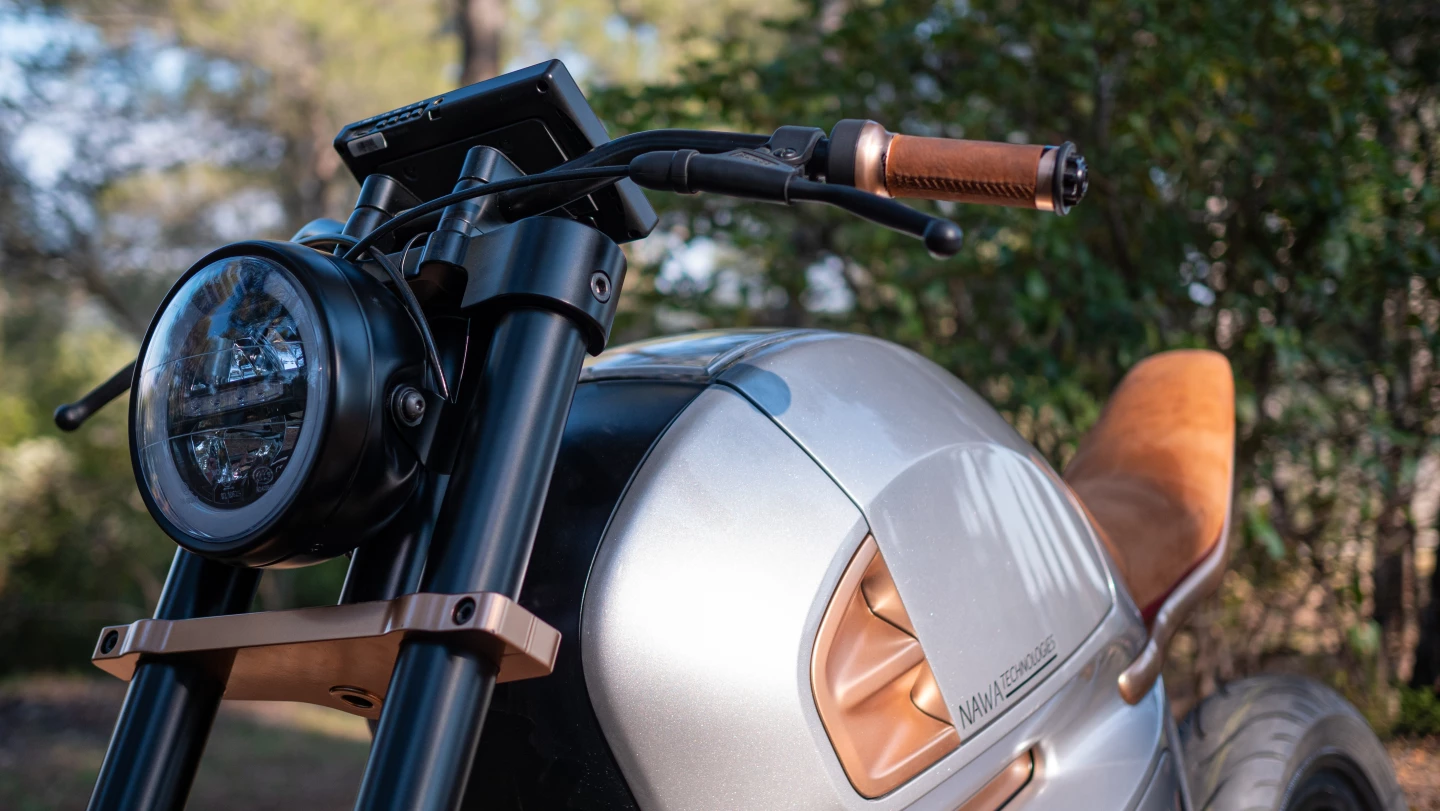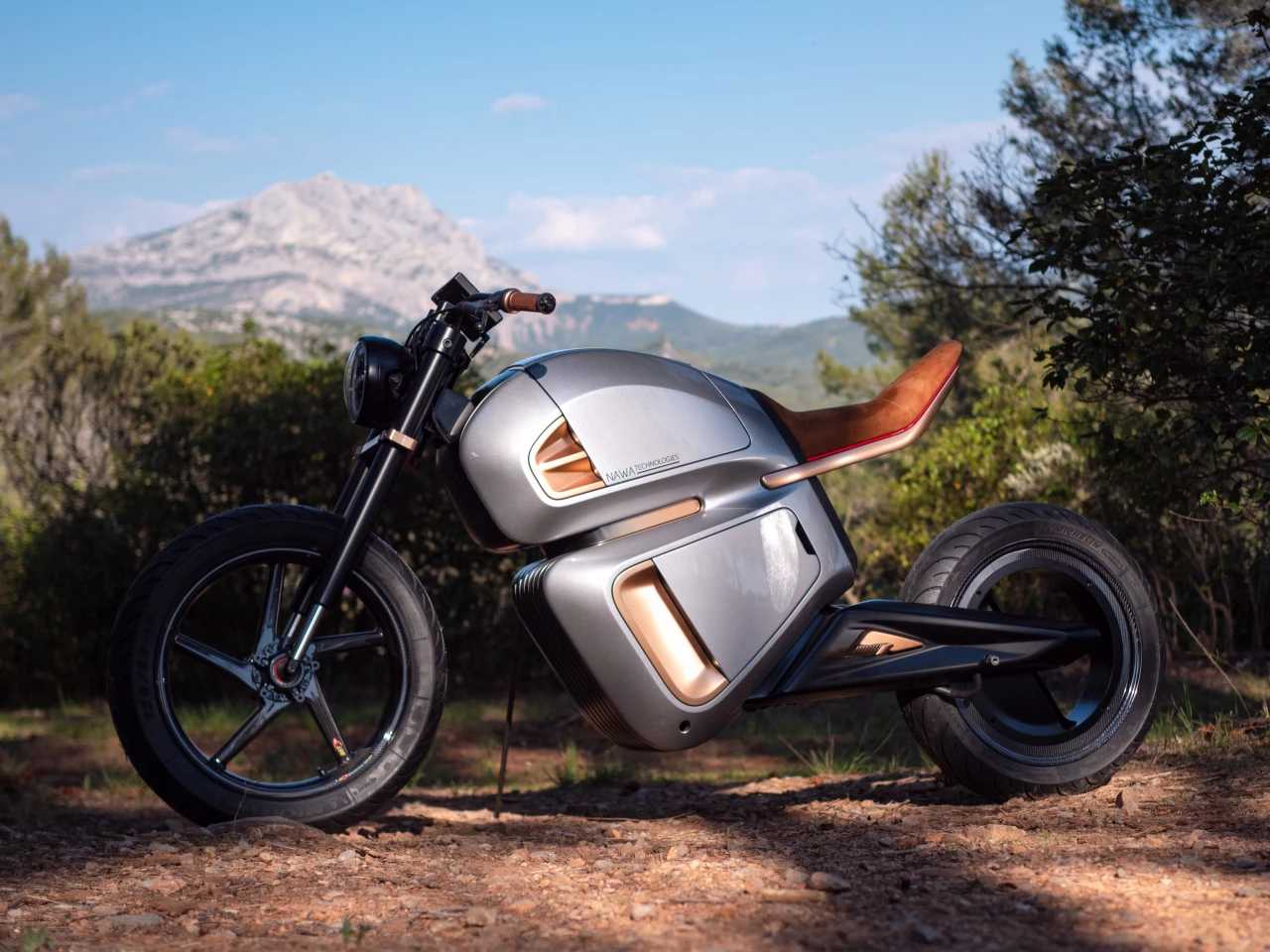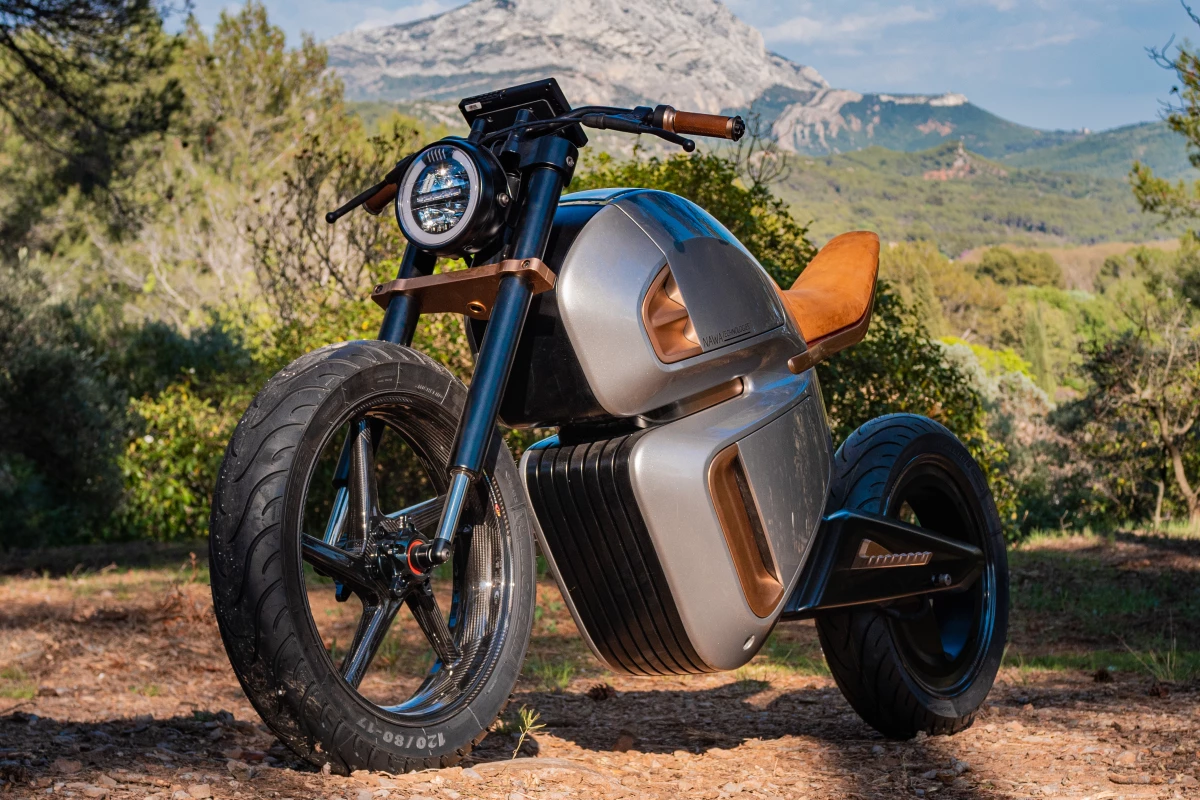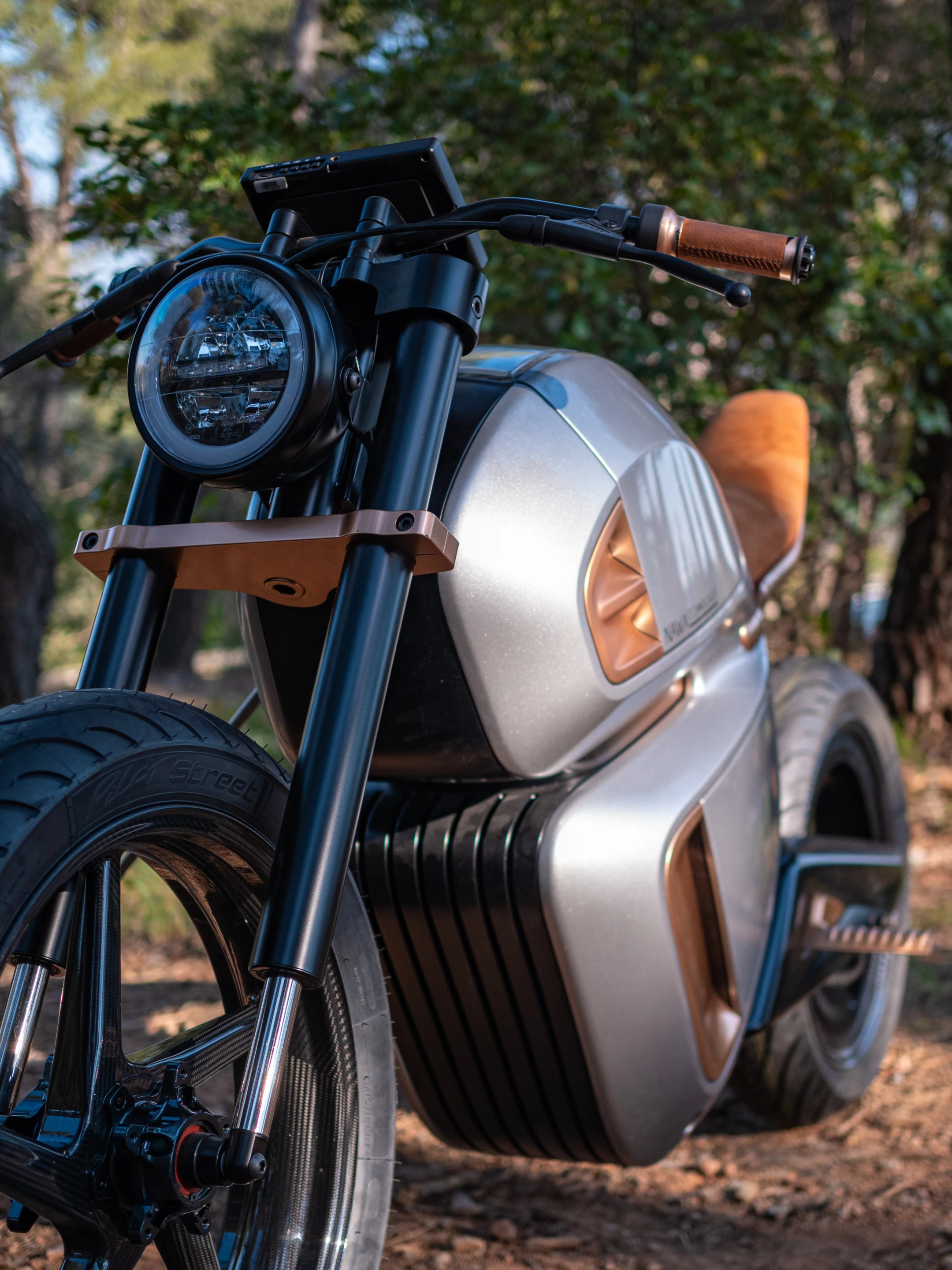Audacious French company Nawa showed off a concept bike in 2019, claiming its supercapacitor-hybrid battery pack could massively boost power and urban range for electric motorcycles. Now, it seems we'll get a chance to see if the numbers stack up.
We've been following Nawa since 2018, when we first spoke to these guys about the potential benefits of using powerful ultracapacitors alongside energy-dense lithium batteries to extend the range and boost the peak power of electric vehicles.
The company wrapped the idea up into a futuristic-looking concept bike for CES 2020, and put some outrageous figures to its claims. Using a 9-kWh lithium battery, you would expect to get around 180 km (110 miles) of urban riding out of a full charge. The Nawa Racer proposed that adding a 0.1-kWh ultracapacitor to the system would boost that range up to around 300 km (180 miles), while unlocking some serious acceleration power to boot.
How? Well, ultracapacitors might not store much energy by weight or volume – indeed, the 0.1-kWh ultracapacitor is about as big as the entire 9-kWh battery on the racer – but they can charge and discharge much faster than lithium batteries. Nawa claims that battery-powered EVs are limited in their regenerative braking capabilities by the speed at which their batteries can receive charge, and that its ultracaps can do the job so much better that you can get radical leaps in urban range, as well as bonus boost power, for less than what it'd cost you to upsize the battery.

We keep stressing this is about urban range, because an ultracapacitor will do nothing to help your bike fight wind resistance for long stretches on the highway. This is all about start-stop use cases around town, where the capacitor can turn as much stop energy back into start energy as possible.
Now, we've had a couple of skeptics quietly question the validity of the Nawa Racer's claims off the record, saying that high-performance lithium batteries can accept charge quickly enough that you'd have to be braking pretty damn hard before the battery becomes a bottleneck and an ultracapacitor starts grabbing enough extra energy to make an appreciable difference in range.
We don't pretend to know the answers, but it looks like we might get a chance to find out. Nawa says it received such a positive reaction to the Racer that it's teaming up with a group of specialists to build a fully functional prototype.
With Nawa founder and CTO Pascal Boulanger supplying the initial sketches, the design work was handled by Envisage Group in the UK. Moving forward, Akka Technologies will be developing the powertrain and aluminum body for the bike, FAAR SAS will be developing the battery management system, and its subsidiary Pronergy is working on a multi-mode electronic power distribution system capable of balancing loads between the battery and ultracapacitor to achieve specific goals. The bike will be tested by YSY Group.

This upcoming "dynamic prototype" is expected to make its debut in Q3 this year, and we'll be very interested to see how it performs. Supercapacitor tech made a fairly spectacular debut in the production automotive world in the Lamborghini Sian, but its potential alongside battery-electric systems could yet prove to be a game-changer in the EV world.
Nawa is comfortable making some pretty extraordinary claims; this is the same company that says its "world's fastest electrodes" using vertically aligned carbon nanotubes can triple the energy-carrying capacity of lithium batteries, and potentially unlock even bigger energy storage gains using non-lithium battery chemistries – without adding much to the price.
So it's great to see Nawa making moves to build the Racer and have a separate company put it to the test so we can all see what happens when the rubber meets the road. Watch this space, and check out the video showing the design of the bike below.
Source: Nawa Technologies








